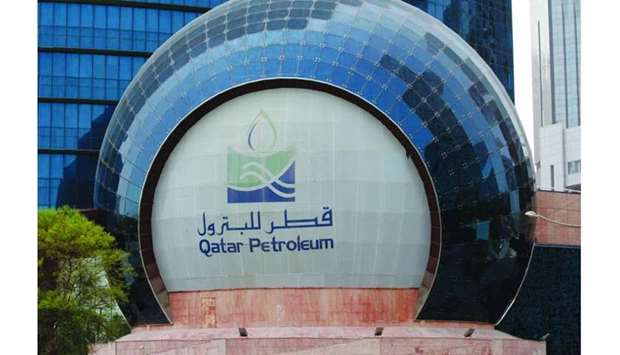Qatar Petroleum is actively pursuing to replace its existing bunker fuel for ships with LNG in a phased manner, which will significantly reduce QP’s total shipping emissions in the LNG value chain by around 28%. Once the fleet is converted to LNG, the total CO2 reduction through this initiative will amount to approximately 1.9mn tonnes of CO2 equivalent per year, QP said in its Sustainability Report.
With a growing population, the demand for transport is anticipated to expand. More emissions also cause poor air quality, causing adverse effects on the environment and human health.
Meeting the increasing demand for transport while reducing emissions will only be achieved with a variety of solutions and technologies, such as lower-emissions liquid fuels, biofuels, and natural gas.
“More than ever, we are committed to decarbonise the transport sector by shipping LNG to destinations in a cost-effective, efficient and environmentally friendly way,” QP said.
In 2019, QP and Shell entered into an agreement to establish an LNG bunkering venture. The creation of a joint venture company, owned equally by both parties, demonstrates QP’s firm commitment to curbing emissions from the transport segment.
On the role of natural gas in power generation, the report said the electricity share of total energy demand is around 19% but is responsible for 40% of the overall energy sector’s GHG emissions. When generated from lower-carbon energy sources, increased use of electricity will support emission reduction in the power sector, as well as in end-use industries through indirect emissions.
In addition, the combustion of fossil fuels and coal releases several pollutants that negatively affect air quality. QP monitors pollutants at affiliated power plants via a continuous emissions monitoring system (CEMS).
As of 2019, natural gas remains the only fuel to be burnt in gas turbines in Qatar, where pollutant levels are significantly lower than from oil or coal, making natural gas the key to maintaining good air quality.
“We strive to further enhance the environmental benefits of gas-fired plants, eg through lowering NOx emission,” the report noted.
“We consider the industrial sector to be crucial for providing vital products for daily lives, from aluminium, steel, and cement to food packaging, paints, and others. However, metals, cement, chemicals and transport industries are also significant consumers of energy and hence emitters of GHG emissions.
“In 2019, the industrial sector accounted for 52% of domestic gas consumption and 19% of total CO2 emissions in Qatar (metals and petrochemicals only). Reducing energy demand and emissions from the industrial sector over the long term, without impacting economic and social development goals, will require effective implementation of energy efficiency strategies, switching to lower carbon fuels and raw materials, and leveraging the best available technologies for GHG reduction.
“Our use of cleaner gas in these industries offers an unrivalled advantage to operate at significantly lower GHG emission and pollutant levels compared to those in coal or oil-based industries. Besides, the use of natural gas in industry has other significant benefits: gas almost completely combusts, while coal produces large volumes of ash and slag, which require costly handling and disposal and gas boilers supplied by pipelines do not require on-site fuel storage, loading, or waste disposal,” QP said.
With a growing population, the demand for transport is anticipated to expand. More emissions also cause poor air quality, causing adverse effects on the environment and human health.
Meeting the increasing demand for transport while reducing emissions will only be achieved with a variety of solutions and technologies, such as lower-emissions liquid fuels, biofuels, and natural gas.
“More than ever, we are committed to decarbonise the transport sector by shipping LNG to destinations in a cost-effective, efficient and environmentally friendly way,” QP said.
In 2019, QP and Shell entered into an agreement to establish an LNG bunkering venture. The creation of a joint venture company, owned equally by both parties, demonstrates QP’s firm commitment to curbing emissions from the transport segment.
On the role of natural gas in power generation, the report said the electricity share of total energy demand is around 19% but is responsible for 40% of the overall energy sector’s GHG emissions. When generated from lower-carbon energy sources, increased use of electricity will support emission reduction in the power sector, as well as in end-use industries through indirect emissions.
In addition, the combustion of fossil fuels and coal releases several pollutants that negatively affect air quality. QP monitors pollutants at affiliated power plants via a continuous emissions monitoring system (CEMS).
As of 2019, natural gas remains the only fuel to be burnt in gas turbines in Qatar, where pollutant levels are significantly lower than from oil or coal, making natural gas the key to maintaining good air quality.
“We strive to further enhance the environmental benefits of gas-fired plants, eg through lowering NOx emission,” the report noted.
“We consider the industrial sector to be crucial for providing vital products for daily lives, from aluminium, steel, and cement to food packaging, paints, and others. However, metals, cement, chemicals and transport industries are also significant consumers of energy and hence emitters of GHG emissions.
“In 2019, the industrial sector accounted for 52% of domestic gas consumption and 19% of total CO2 emissions in Qatar (metals and petrochemicals only). Reducing energy demand and emissions from the industrial sector over the long term, without impacting economic and social development goals, will require effective implementation of energy efficiency strategies, switching to lower carbon fuels and raw materials, and leveraging the best available technologies for GHG reduction.
“Our use of cleaner gas in these industries offers an unrivalled advantage to operate at significantly lower GHG emission and pollutant levels compared to those in coal or oil-based industries. Besides, the use of natural gas in industry has other significant benefits: gas almost completely combusts, while coal produces large volumes of ash and slag, which require costly handling and disposal and gas boilers supplied by pipelines do not require on-site fuel storage, loading, or waste disposal,” QP said.


